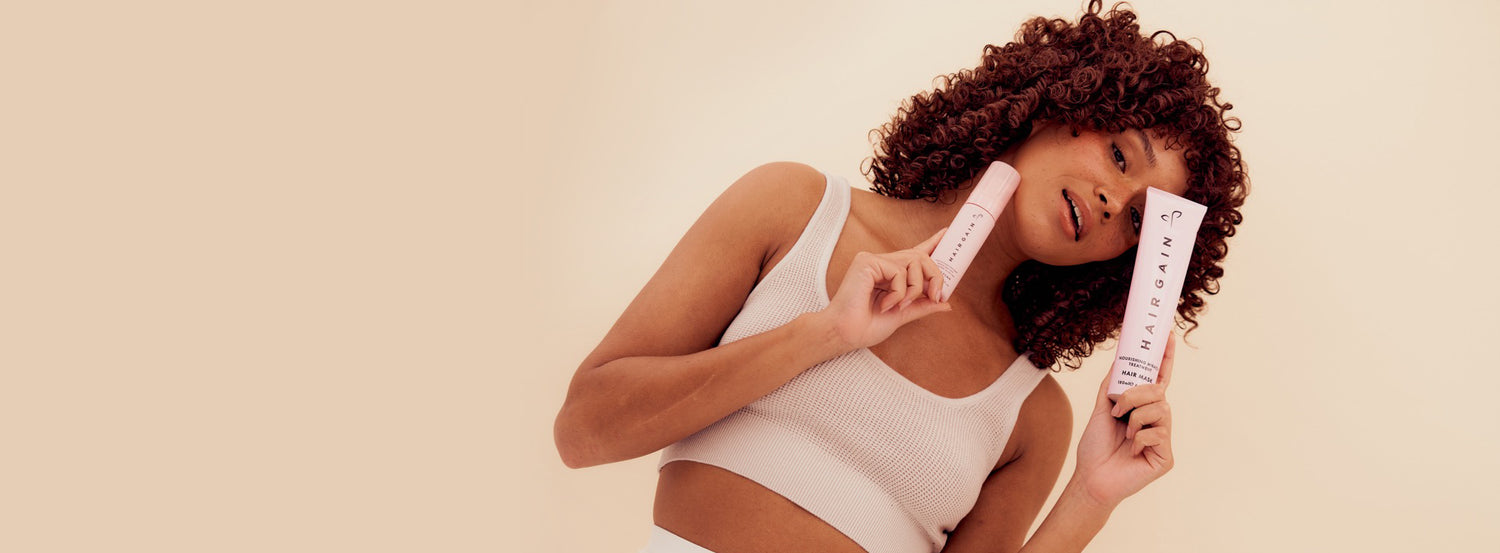Everything You Need to Know About Female Hair Loss - A Comprehensive Guide to Understanding, Preventing, and Managing Hair Fall in Women
Hair is a powerful symbol of femininity, identity, and confidence. It frames our face, enhances our style, allows us to express our personality and plays a huge role in our self-esteem. Around the world, hair can carry powerful symbolic meaning. In times of protest and upheaval, cutting hair has even been used as a powerful act of resistance and solidarity. Hair loss can be a deeply distressing experience, leaving women feeling vulnerable and uncertain about their options. While discussions of male baldness are common, female hair loss is often overlooked. Despite great progress in normalising the discussion, female hair loss remains a taboo topic for many women. The good news? Hair loss in women is often treatable, and early intervention can significantly improve outcomes.
This comprehensive guide will explore the causes, prevention strategies, and the most effective treatments for female hair loss. We’ll also highlight Hair Gain’s amazing range of expert-backed hair supplements, topical treatments and accessories, all specifically formulated to support healthier, thicker hair.
-
What Is Postpartum Hair Loss – And How Long Does It Last?
-
Can Illness Cause Female Hair Loss – And What Can You Do to Support Recovery?
-
Common Health Conditions That Affect Hair Growth
-
-
Why Does Hair Fall Out After Surgery – And Will It Grow Back?
-
Can Rapid Weight Loss Cause Female Hair Loss – And How Do You Prevent It?
-
What Nutrients Does Your Hair Need – And Are You Getting Enough?
-
Feeding Your Follicles
-
Key Nutrients for Hair Growth
-
-
Can Stress Cause Female Hair Loss – And How Do You Reverse It?
-
Does Poor Sleep Affect Hair Health – And How Can You Improve It?
-
How Do the Seasons Affect Hair – And How Can You Protect It Year-Round?
-
How Can You Protect Your Hair on Holiday – And Recover After Sun, Salt, or Chlorine?
-
Easy Summer Hairstyles That Won’t Damage Your Hair
-
Post-Holiday Hair Recovery
-
To protect your hair on holiday:
-
-
Can Poor Scalp Health Cause Hair Loss?
-
What are the Biggest Myths About Female Hair Loss?
-
How Do You Know If Your Scalp Is Healthy?
-
How Can I Control a Problem Scalp?
-
Is Hair Oiling Right For You?
-
Should I Try That Viral Hair Hack?
-
How Can Hair Gain Products Support Your Hair Health – Inside and Out?
-
Strengthening Hair From Within
-
-
What is a Trichologist – And When Should I See One?
-
How Can a Trichologist Help?
-
When Should You See a Trichologist?
-
-
Conclusion: Taking Control of Your Hair Health
-
What Causes Female Hair Loss?
-
Hormonal Changes
-
Medical Conditions & Genetics
-
Nutritional Deficiencies
-
Stress-Related Hair Loss
-
-
How Does the Hair Growth Cycle Affect Hair Loss – and What Should You Know About It?
-
What Are The Different Stages Of The Hair Growth Cycle?
-
-
Is My Hair Getting Thinner?
-
What Causes Hair Breakage – And How Can You Fix It?
-
How To Fix Damaged Hair
-
-
Why Does My Hair Feel Dry?
-
How Does Menopause Affect Your Hair – And What Can You Do About It?
-
Targeted Help
-
-
How Common is Female Hair Loss?
-
How Much Hair Loss Is Normal?
-
The Reality of Female Hair Loss: The Numbers
-
-
What is Telogen Effluvium?
-
Is Telogen Effluvium Permanent?
-
What Are The Symptoms Of Telogen Effluvium?
-

